Introduction
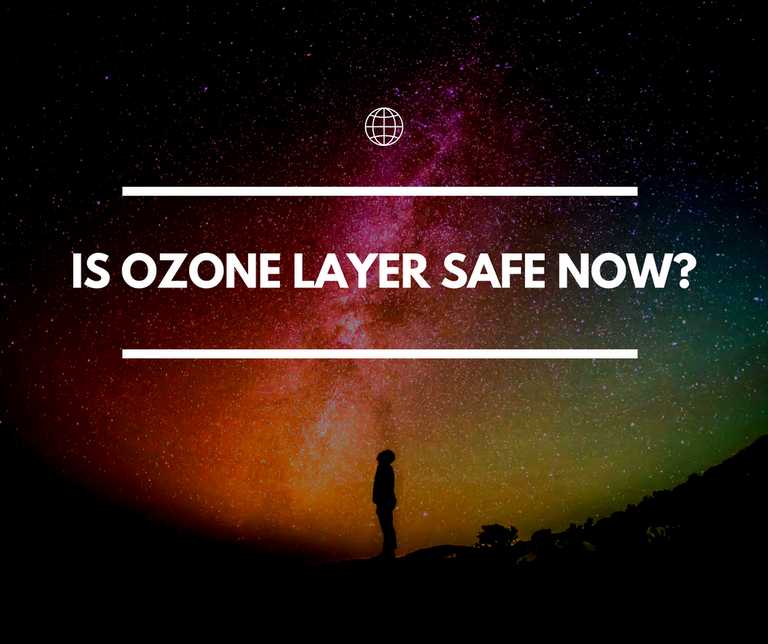
Ozone layer, is a zone of Ozone gas present in the stratosphere layer of the Earth’s atmosphere, at a height of about 20 – 30 kilometers above the Earth’s surface. The significance of this layer is due to the fact that it absorbs about 95 to 99 percent of the ultraviolet rays of the sun.
About ozone layer
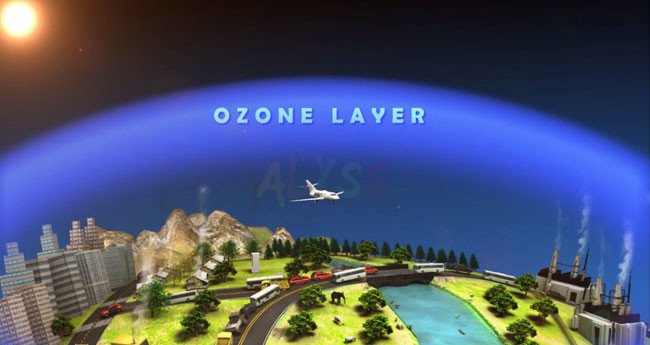
For the science nerds, I’ll briefly explain what happens in the ozone layer. Ultraviolet rays are a biological threat to humans. Some UV rays are blocked by nitrogen in the upper layers. The rest of UV rays are divided into three parts on the basis of the wavelengths – UV-A, UV-B, UV-C. Out of this, UV-A is not much harmful and the ozone layer is mostly transparent to these rays. The very harmful UV-B and UV-C rays are blocked by the ozone layer.
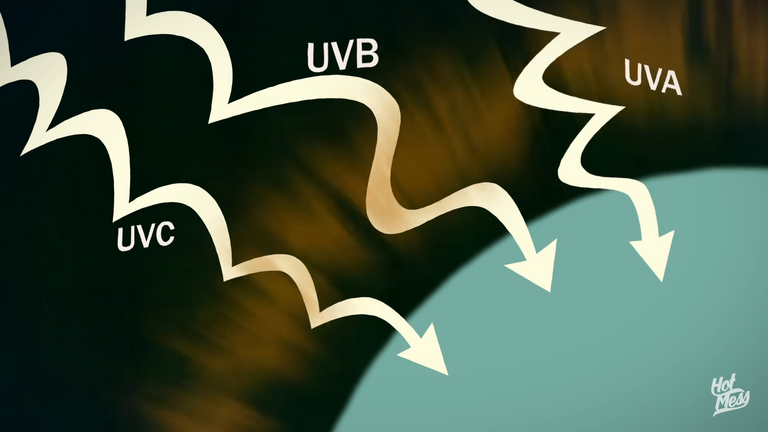
Ozone is formed by three Oxygen molecules by the following reaction:
3O2 + UV -----> 2O3
In this process, the UV rays are absorbed by the oxygen molecules to form Ozone gas. The rays which escape this layer are the major cause of Sunburns, cataract and genetic mutations in some species.
Its depletion
Chloroflurocarbons (CFCs) are synthetically produced gases (hydrocarbons) which were widely used in the 20th century. These were being used since the late 19th century, however, using it as a refrigerant began after 1920s. It had a number of benefits. It was non-toxic, inflammable and generally non-reactive. However, when it reached the upper layers of stratosphere, near the ozone layer, the chlorine and bromine present in it reacted with the oxygen and ozone molecules and formed other compounds. As a result, the concentration of ozone began to reduce and an Ozone hole was formed above the Antarctic with a significant decrease in the concentration of Ozone.
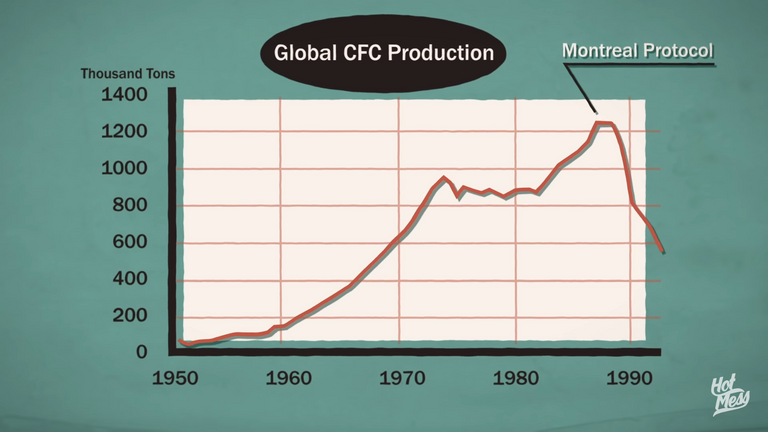
Protective measures
Scientists recognized the harmful effects of zone in 1974. As the news came out, the US company S.C. Johnson voluntarily removed CFCs from its aerosol products. Some years later, the US environment and protection agency banned CFCs completely, and its alternatives – HFCs and HCFCs sprung up. These alternatives were produced by companies like Dupont and S.C. Johnson, which asked the US government to press the issue of Ozone depletion around the world so that they could sell these alternatives globally.
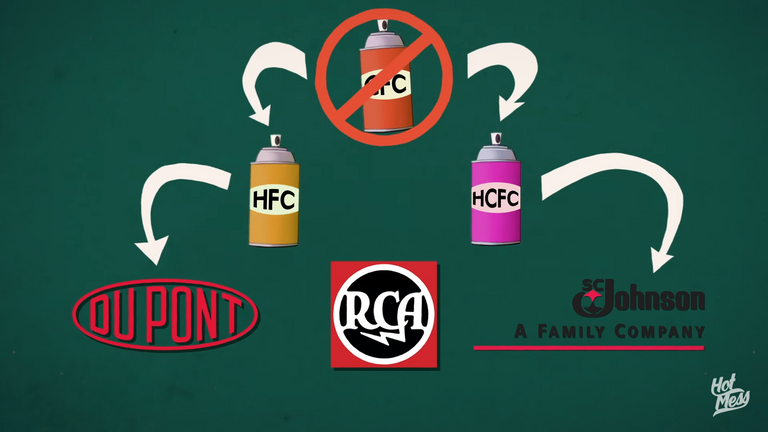
Finally, in 1987, an international agreement was signed, known as the Montreal protocol, to stop the production of Ozone depleting substances. It was the first international treaty to be signed which dealt with a global environment threat. The major points under the protocol were:
• To stop using CFC immediately
• Reduce or prevent a range of other gases which could be a potential threat to the environment
• Developed / rich countries would financially help under-developed / developing / poor countries to reduce CFC production and promote use of alternatives.
Effect of the protocol
After the implementation of recommendations of the Montreal protocol, the ozone hole saw a continuous improvement in the subsequent years and is expected to heal completely by 2065 provided strict measure are regularly followed.
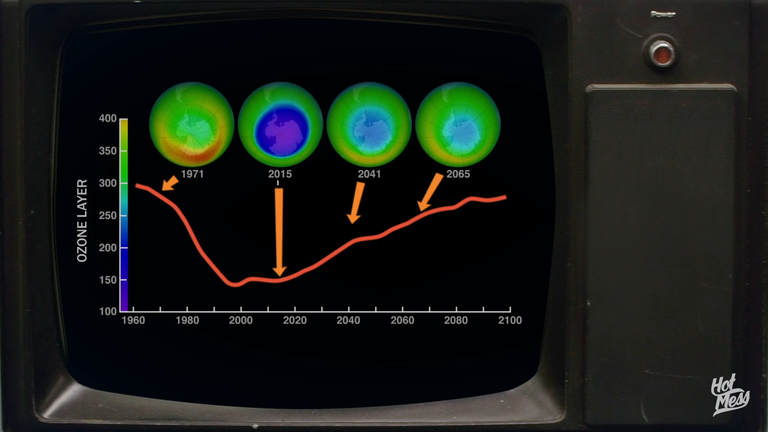
The Future
The realization of the problem and taking steps to solve it, on a global scale has proved that we, as humans, can collectively tackle the world problems on such a large scale. Though the prevention of CFCs production was easier while the prevention of use of fossil fuels would need much more coordinated plans, Montreal protocol is a ray of hope that it is possible.
Let me know if you have any doubts or want further information. I will link the references to this article below. Stay healthy and environment-friendly.
Regards.
References : Here.
Nicely written..
Thankyou shamim, more interesting content is coming soon
nice post
Informative info
Thankyou zaeem, we really need to save our environment actively now
good information
and saving all people Saving the Ozone layer
Yes Aman, its the need of the hour
ozone layer is getting weak day by day... nice information
Yes, but the measures we took after 1980s has shown positive results since then. We do need to follow more preventive measures though.
Awesome blog bro
Thankyou @ankit-singh